העתירה דורשת לאסור על מסלולים נפרדים מגדרית באקדמיה משום שהם פוגעים בזכות של נשים לשוויון, בתעסוקה של נשים מרצות ומקבעות היררכיה מגדרית.
CWJ’s latest case
בשבוע שעבר הופיעה וטענה ד"ר עו"ד סוזן ווייס בבית המשפט העליון במסגרת בג"ץ 6500/17 יופי תירוש נ' המל"ג. העתירה דורשת לאסור על מסלולים נפרדים מגדרית באקדמיה משום שהם פוגעים בזכות של נשים לשוויון, בתעסוקה של נשים מרצות ומקבעות היררכיה מגדרית.
מרכז צדק לנשים הצטרף כ"ידיד בית המשפט" וייצג גם את ארגון "קולך". במסמך שהגשנו לבית המשפט השתמשנו בניסיון שלנו ממגוון התיקים המשפטיים וטענו כי הפרדה – תמיד תהיה חשודה בהדרכה וביצירת היררכיה בין גברים לנשים. ומכאן על מדינת ישראל להגן על הזכות לכבוד ולשוויון ולאסור על הרחבת המסלולים הנפרדים באקדמיה.
מתוך הטיעונים שהגשנו:
"במדינה דמוקרטית, אשר מעלה על נס את ערך השוויון, הפרדה מגדרית כמוה כתמרור אזהרה שאל לבית המשפט להתעלם ממנו: המגיבות יטענו כי הפרדה מגדרית לעולם אינה מעשה ניטרלי[1] ושהיא, במילותיה של [2]Susan Muller Okin, "אינה טובה לנשים". על כן בית המשפט, כשניצבת בפניו הפרדה שכזו – עליו לנקוט מיד בחשדנות כלפיה ולאמצה רק במקרים נדירים ביותר וכשההצדקה לה בולטת וברורה.
מנסיונן העשיר של המגיבות, וכן ממקרים רבים שעלו בשנים האחרונות לתודעה הציבורית, עולה כי הפרדה על בסיס מין יוצרת תבנית שפוגעת בנשים במספר דרכים:
א. ביסוס סטראוטיפים.
ב. העלמת נשים והשתקתן.
ג. החפצת נשים.
ד. הכפפת נשים לגברים.
ה. סמל לתיאוקרטיה."

בית משפט העליון
In one fell swoop, the rabbinic court declared that the entire family was not Jewish and that all of their marriages were null. Anna, Lena and Yulia turned to the Center for Women’s Justice. We submitted a petition to the Supreme Court, together with the organization Generation 1.5, which supports young Israelis of Russian descent. In the petition, we protest the injustice done to Anna and her entire family by the rabbinic court’s revocation of its own ruling from 30 years ago; we protest the rabbinic court’s cruel, prejudiced attitude toward Jews from the FSU; we protest the rabbinic court’s abuse of women, who are already disadvantaged and vulnerable to extortion during religious divorce without having to worry about their identity being erased as well; we protest the rabbinic court’s violation of basic justice; and we protest the rabbinic court’s corruption of halakha, which was never meant to be wielded as a weapon. Enough is enough. Read and listen to the Times of Israel’s interview with CWJ’s founder and director, Dr. Susan Weiss, about his absurd case and what it means for all of us. *Names have been changed to protect their identity.“What would you do if you walked into a rabbinic courtroom expecting divorce proceedings, but walked out with your entire family’s Jewishness revoked?”
The fact that Anna, Lena and Yulia had already undergone–and passed!–Jewishness investigations by that same institution and had married through the rabbinate did not matter. The rabbinate regards all Jews of Russian descent with deep suspicion, “conditional Jews” whose identity may be revoked at any time. Guilty until proven innocent, and even once proven, never safe. The burden of proof was now on Anna to reclaim her Jewish heritage. She quickly found her mother’s old Soviet birth certificate and brought it to the court. Ever suspicious, the rabbinic court sent it to a forensics team to see if any problems would turn up. They found an erasure on the document and concluded that it must be a forgery. Anna had since found many additional documents that attested to her mother’s Jewishness, but it was too late. The rabbinic court refused to allow her to submit any additional documents to the file. They also refused to speak with the community rabbi in Ukraine, who tried in vain to corroborate the family’s Jewishness. But it gets worse. Even though the rabbinic court only has jurisdiction to make decisions about people who are actual parties to the case before them–here, Anna and her husband, the parties to the divorce–the rabbinic court overreached and summoned Annan’s entire extended family to the court against their will. They opened Jewishness investigations against three generations: the mother, the sisters, children, nieces and nephews.Agunah
n agunah is a woman whose husband has disappeared or does not have the capacity to deliver a bill of divorce to his wife because of his physical or mental condition. An agunah is bound in a marriage that exists “on paper” alone, and she cannot free herself from this marriage or marry another man.2017
“Prenups Meant to Solve the Problem of the Agunah: Toward Compensation, Not “Mediation,” in Nashim: A Journal of Jewish Women's Studies & Gender Issues, No. 31, New Historical and Socio-Legal Perspectives on Jewish Divorce (Spring–Fall 2017), Renée Levine Melammed, ed. (Hadassah-Brandeis Institute at Brandeis University, the Schechter Institute of Jewish Studies in Jerusalem, and Indiana University Press), pp. 61-902017
“Prenups Meant to Solve the Problem of the Agunah: Toward Compensation, Not “Mediation,” in Nashim: A Journal of Jewish Women's Studies & Gender Issues, No. 31, New Historical and Socio-Legal Perspectives on Jewish Divorce (Spring–Fall 2017), Renée Levine Melammed, ed. (Hadassah-Brandeis Institute at Brandeis University, the Schechter Institute of Jewish Studies in Jerusalem, and Indiana University Press), pp. 61-90You tube link
THE BANKS FAMILY, South Korea, circa 1968: I’m covering my hand in this family portrait, because I accidentally cut my finger with a
